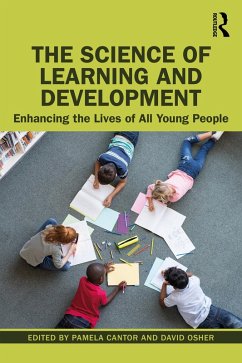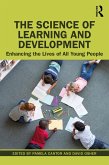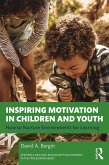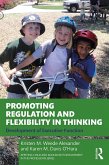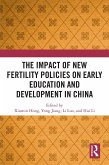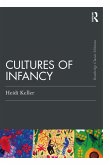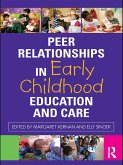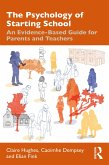The Science of Learning and Development (eBook, PDF)
Enhancing the Lives of All Young People
Redaktion: Cantor, Pamela; Osher, David
45,95 €
45,95 €
inkl. MwSt.
Sofort per Download lieferbar

23 °P sammeln
45,95 €
Als Download kaufen

45,95 €
inkl. MwSt.
Sofort per Download lieferbar

23 °P sammeln
Jetzt verschenken
Alle Infos zum eBook verschenken
45,95 €
inkl. MwSt.
Sofort per Download lieferbar
Alle Infos zum eBook verschenken

23 °P sammeln
The Science of Learning and Development (eBook, PDF)
Enhancing the Lives of All Young People
Redaktion: Cantor, Pamela; Osher, David
- Format: PDF
- Merkliste
- Auf die Merkliste
- Bewerten Bewerten
- Teilen
- Produkt teilen
- Produkterinnerung
- Produkterinnerung

Bitte loggen Sie sich zunächst in Ihr Kundenkonto ein oder registrieren Sie sich bei
bücher.de, um das eBook-Abo tolino select nutzen zu können.
Hier können Sie sich einloggen
Hier können Sie sich einloggen
Sie sind bereits eingeloggt. Klicken Sie auf 2. tolino select Abo, um fortzufahren.

Bitte loggen Sie sich zunächst in Ihr Kundenkonto ein oder registrieren Sie sich bei bücher.de, um das eBook-Abo tolino select nutzen zu können.
This essential text unpacks major transformations in the study of learning and human development and provides evidence for how science can inform innovation in the design of settings, policies, practice, and research to enhance the life path, opportunity and prosperity of every child.
- Geräte: PC
- mit Kopierschutz
- eBook Hilfe
Andere Kunden interessierten sich auch für
![The Science of Learning and Development (eBook, ePUB) The Science of Learning and Development (eBook, ePUB)]() The Science of Learning and Development (eBook, ePUB)45,95 €
The Science of Learning and Development (eBook, ePUB)45,95 €![Inspiring Motivation in Children and Youth (eBook, PDF) Inspiring Motivation in Children and Youth (eBook, PDF)]() David A. BerginInspiring Motivation in Children and Youth (eBook, PDF)20,95 €
David A. BerginInspiring Motivation in Children and Youth (eBook, PDF)20,95 €![Promoting Regulation and Flexibility in Thinking (eBook, PDF) Promoting Regulation and Flexibility in Thinking (eBook, PDF)]() Kristen M. Weede AlexanderPromoting Regulation and Flexibility in Thinking (eBook, PDF)29,95 €
Kristen M. Weede AlexanderPromoting Regulation and Flexibility in Thinking (eBook, PDF)29,95 €![The Impact of New Fertility Policies on Early Education and Development in China (eBook, PDF) The Impact of New Fertility Policies on Early Education and Development in China (eBook, PDF)]() The Impact of New Fertility Policies on Early Education and Development in China (eBook, PDF)52,95 €
The Impact of New Fertility Policies on Early Education and Development in China (eBook, PDF)52,95 €![Cultures of Infancy (eBook, PDF) Cultures of Infancy (eBook, PDF)]() Heidi KellerCultures of Infancy (eBook, PDF)43,95 €
Heidi KellerCultures of Infancy (eBook, PDF)43,95 €![Peer Relationships in Early Childhood Education and Care (eBook, PDF) Peer Relationships in Early Childhood Education and Care (eBook, PDF)]() Peer Relationships in Early Childhood Education and Care (eBook, PDF)41,95 €
Peer Relationships in Early Childhood Education and Care (eBook, PDF)41,95 €![The Psychology of Starting School (eBook, PDF) The Psychology of Starting School (eBook, PDF)]() Claire HughesThe Psychology of Starting School (eBook, PDF)19,95 €
Claire HughesThe Psychology of Starting School (eBook, PDF)19,95 €-
-
-
This essential text unpacks major transformations in the study of learning and human development and provides evidence for how science can inform innovation in the design of settings, policies, practice, and research to enhance the life path, opportunity and prosperity of every child.
Dieser Download kann aus rechtlichen Gründen nur mit Rechnungsadresse in A, B, BG, CY, CZ, D, DK, EW, E, FIN, F, GR, HR, H, IRL, I, LT, L, LR, M, NL, PL, P, R, S, SLO, SK ausgeliefert werden.
Produktdetails
- Produktdetails
- Verlag: Taylor & Francis
- Seitenzahl: 288
- Erscheinungstermin: 21. Juni 2021
- Englisch
- ISBN-13: 9781000399745
- Artikelnr.: 61775273
- Verlag: Taylor & Francis
- Seitenzahl: 288
- Erscheinungstermin: 21. Juni 2021
- Englisch
- ISBN-13: 9781000399745
- Artikelnr.: 61775273
- Herstellerkennzeichnung Die Herstellerinformationen sind derzeit nicht verfügbar.
Pamela Cantor, MD, is a child and adolescent psychiatrist specializing in trauma and the founder of Turnaround for Children, an organization grounded in science that builds the capacities of educators to buffer the negative impacts of trauma and intentionally promote healthy whole-child development and learning for every student. She is a governing partner of the Science of Learning and Development Alliance, which is elevating a diverse body of scientific literature to support the transformation of the systems that educate and develop children. David Osher, PhD, is Vice President and Institute Fellow at the American Institutes for Research, where he does research and supports practice, domestically and globally. He has led research, knowledge syntheses and technical assistance, and published on school climate and the conditions for learning; social and emotional learning; supportive, community-building approaches to school discipline and safety; cultural competence and responsiveness; family support and engagement, implementation science; and the science of learning and development. His recent publications include Creating Safe, Equitable, Engaging Schools and Keeping Students Safe and Helping Them Thrive: A Collaborative Handbook on School Safety, Mental Health, and Wellness.
Foreword I: The Science of Learning and Development: Entering a New Frontier of Human Development Theory, Research, and Application Foreword II: We Should Treat Students as Whole People: Brain Science Proves It Part 1: Features and Implications of the Science of Learning and Development 1. Malleability, Plasticity, and Individuality: How Children Learn and Develop in Context 2. Drivers of Human Development: How Relationships and Context Shape Learning and Development 3. Developments in Developmental Research and Theory 4. Fostering Optimal Development and Averting Detrimental Development: Prescriptions, Proscriptions, and Specificity Part 2: Implications for Educational Practice of the Science of Learning and Development 5. Using the Science of Learning and Development to Transform Educational Practice 6. Sciences of Learning and Development: Some Thoughts from the Learning Sciences 7. Practice That Supports Learning and Development: A Commentary 8. Commentary: Relationships, Developmental Contexts, and the School Development Program Part 3: Focusing on Equity 9. Teaching for Equity: Where Developmental Needs Meet Racialized Structures 10. Looking at SoLD Through an Equity Lens: Will the Science of Learning and Development Be Used to Advance Critical Pedagogy or Will It Be Used to Maintain Inequity by Design? 11. Equitable Learning and Development: Applying Science to Foster Liberatory Education Part 4: Towards the Future of the Science of Learning and Development 12. Making Developmental Science Accessible, Usable, and A Catalyst for Innovation 13. From the Science of Learning (and Development) to Learning Engineering 14. The Future of the Science of Learning and Development: Whole-Child Development, Learning, and Thriving in an Era of Collective Adversity, Disruptive Change, and Increasing Inequality
Foreword I: The Science of Learning and Development: Entering a New Frontier of Human Development Theory, Research, and Application Foreword II: We Should Treat Students as Whole People: Brain Science Proves It Part 1: Features and Implications of the Science of Learning and Development 1. Malleability, Plasticity, and Individuality: How Children Learn and Develop in Context 2. Drivers of Human Development: How Relationships and Context Shape Learning and Development 3. Developments in Developmental Research and Theory 4. Fostering Optimal Development and Averting Detrimental Development: Prescriptions, Proscriptions, and Specificity Part 2: Implications for Educational Practice of the Science of Learning and Development 5. Using the Science of Learning and Development to Transform Educational Practice 6. Sciences of Learning and Development: Some Thoughts from the Learning Sciences 7. Practice That Supports Learning and Development: A Commentary 8. Commentary: Relationships, Developmental Contexts, and the School Development Program Part 3: Focusing on Equity 9. Teaching for Equity: Where Developmental Needs Meet Racialized Structures 10. Looking at SoLD Through an Equity Lens: Will the Science of Learning and Development Be Used to Advance Critical Pedagogy or Will It Be Used to Maintain Inequity by Design? 11. Equitable Learning and Development: Applying Science to Foster Liberatory Education Part 4: Towards the Future of the Science of Learning and Development 12. Making Developmental Science Accessible, Usable, and A Catalyst for Innovation 13. From the Science of Learning (and Development) to Learning Engineering 14. The Future of the Science of Learning and Development: Whole-Child Development, Learning, and Thriving in an Era of Collective Adversity, Disruptive Change, and Increasing Inequality
